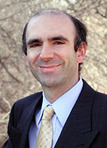Jeb Bush And George W. Bush Have Drastically Different Views On Climate Change
The Bush brothers: Jeb, left, and George W.
CREDIT: AP Photos/Andrew Breiner
When considering potential 2016 presidential candidate Jeb Bush, a casual observer might make a simple comparison: He’s probably just like his brother.
But so far, this hasn’t proved to be true on multiple fronts — and recently it’s become clear that it’s also not true when it comes to climate change. While Jeb, the former Republican governor of Florida, has been on a streak of statements questioning scientists’ knowledge of human-caused climate change, President George W. Bush was relatively progressive on the issue, basing his position on advice from respected institutes like the National Academy of Sciences and the U.N. Framework Convention on Climate Change.
First, though, the similarities: Both George and Jeb have said the climate is changing and that something should be done about it. In Jeb’s case, this has made him look semi-moderate on the issue, if only because many of his potential Republican opponents don’t think climate change exists at all.
But saying climate change exists is a relatively benign statement that ignores humanity’s role and, thus, the responsibility to reduce carbon emissions. While Jeb Bush has called the science surrounding humanity’s role in warming “convoluted,” his brother George actually acknowledged warming was due to greenhouse gas increases caused “in large part [by] human activity.”
“Greenhouse gases trap heat, and thus warm the earth because they prevent a significant proportion of infrared radiation from escaping into space,” President Bush said in a 2001 address. “Concentration of greenhouse gases, especially CO2, have increased substantially since the beginning of the industrial revolution. And the National Academy of Sciences indicate that the increase is due in large part to human activity.”
President Bush did go on to say that the National Academy of Sciences was not sure exactly “how much effect natural fluctuations in climate may have had on warming.” But he also called the Academy “highly-respected,” and urged it to “provide us the most up-to-date information about what is known and about what is not known on the science of climate change.”
Nearly 15 years later, the National Academy of Sciences has provided up-to-date information about what is known about climate change. And its conclusions are definitive: “Scientists know that recent climate change is largely caused by human activities from an understanding of basic physics, comparing observations with models, and fingerprinting the detailed patterns of climate change caused by different human and natural influences.” The Academy goes on to say that human-caused climate change is “disruptive,” and if left unabated would lead to the “extinction of many species, population migrations, and pronounced changes in the land surface and ocean circulation.”
The Academy’s projections about climate change weren’t as dire or definitive in 2001 as they are now. Yet, when President Bush gave his speech, he called on the United States and other high-emitting countries to put forth “a 100 percent effort” in reducing greenhouse gases, and pledged to work with scientific institutions to “monitor and mitigate emissions,” among other things.
On the other hand, Jeb’s doubts about the reality of human-caused climate change seem to have grown as the science has become more and more settled — a trend that has shown itself in the majority of Congressional Republicans. And despite the Academy’s current warnings of extinctions, migration, et cetera, he recently said he does not think climate change is “the highest priority” — though he did add, “I don’t think we should ignore it, either.”
So what would Jeb do to combat climate change? In comments to CNN, he said he would provide more incentives for hydraulic fracking and horizontal drilling, processes that increase the flow of natural gas, a lower carbon-emitting fossil fuel than crude oil or coal. This proposal likely won’t sit well with climate hawks or climate scientists, who often note that half of the world’s natural gas reserves need to stay in the ground to limit warming to stable levels.
President Bush wasn’t a climate champion either. Despite promises, he eventually ditched his effort to regulate carbon dioxide from power plants. He pulled the United States out of the Kyoto Protocol — an international treaty to reduce emissions — and called environmentalists “green, green, lima beans.”
But if there’s one thing that made him a bit different than Jeb on the issue, it’s this, recalled in a 2003 book by his former speechwriter David Frum: “[He] could never quite bring himself to deny that climate change was very likely real and man-made.”
The post Jeb Bush And George W. Bush Have Drastically Different Views On Climate Change appeared first on ThinkProgress.
Joseph J. Romm's Blog
- Joseph J. Romm's profile
- 10 followers



